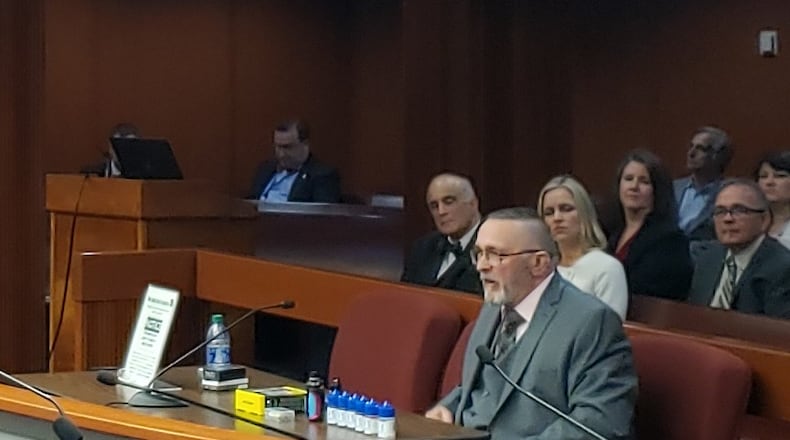The chairwoman of a state House health panel said she wants Georgia to pull flavored vaping liquids from stores and raise the purchase age to 21 to help keep the smoking product out of the hands of children.
House Health and Human Services Chairwoman Sharon Cooper, a Marietta Republican, said she believes the General Assembly will pursue legislation to cut down on underage use of the e-cigarettes.
Cooper pointed to the landmark 1998 legal settlement between the states and tobacco industry that required companies to stop targeting children with flavored tobacco products.
“If you are really concerned about young people not becoming addicted, why should we not follow (the example) and make this tobacco product the same as cigarettes?” she said.
Georgia officials are reacting to the national story about vaping casualties that has hit home. In a majority of instances, those who died were older adults who said they used a vape to ingest THC, the high-inducing chemical in marijuana.
As of Wednesday, the state reported 35 vaping-associated illnesses, four of them fatal, according to the Georgia Department of Public Health.
Cooper’s committee on Wednesday heard passionate testimony from vape shop owners — including many who said they used e-cigarettes to either cut back on nicotine use or quit smoking cigarettes altogether. They said they supported limiting the amount of nicotine in the vaping liquids and raising the legal age of those purchasing the products from 18 to 21.
Keith Gossett, who owns a vape shop in Columbus, said he used vaping to quit smoking cigarettes.
“I smoked for 45 years and I will die from that — I have no doubt of that,” he said, seated at a table with vaping liquids. “But this product: I hope it extends my life. … I offer your smoking constituents a way out.”
Brad Rodu, a professor of medicine at the University of Louisville who studies the harms of tobacco, said he believed banning vaping would make it more difficult for those who are trying to quit smoking traditional cigarettes.
“There’s no question that (vaping is) vastly safer,” he said. “We do know that it’s a good bet for smokers to switch to these products.”
Cooper said with vaping being relatively new, she worries about the unknown long-term effects. And some physicians say there is not enough evidence to prove vaping helps smokers quit using tobacco.
“There is nicotine patches, gums, lozenges and medicines we can prescribe,” said Dr. Tracy Henry, assistant health director of the primary care center at Grady Memorial Hospital. “There are several other ways that are evidence-based to try to stop smoking.”
Cooper said while she personally would like the state to ban all tobacco use, adults are capable of making their own decisions about using the products. But children, she said, need to be protected from candy-flavored products that could lead to nicotine addiction.
The Atlanta-based U.S. Centers for Disease Control and Prevention estimated this year that 27.5% of high school students and 10.5% of middle school students used e-cigarettes within the past 30 days. The number of kids using e-cigarettes is up about 1.7 million from last year, which means 5.3 million American youths are putting their developing brains at risk, health experts say.
About the Author
Keep Reading
The Latest
Featured




